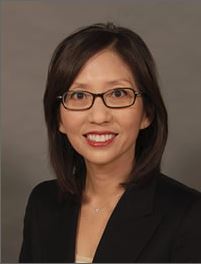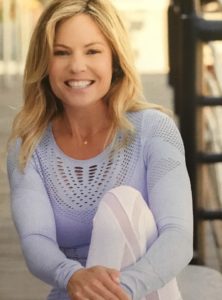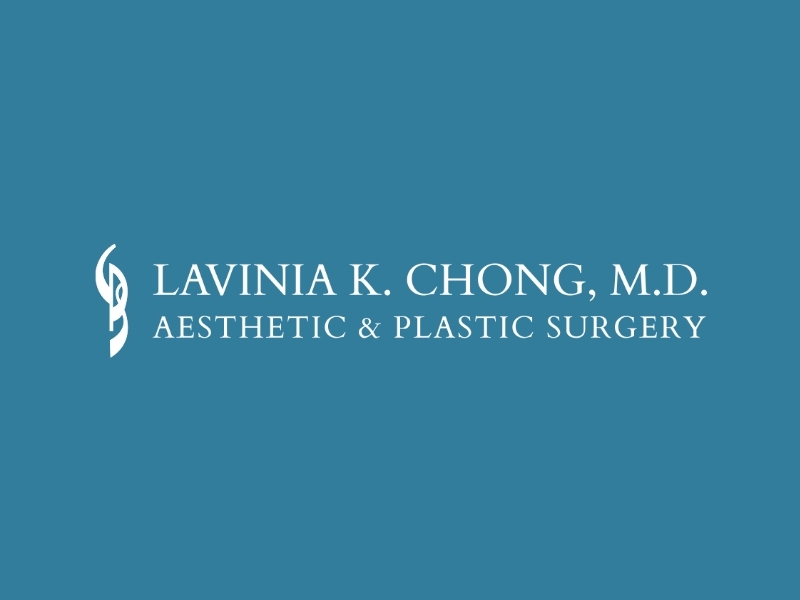
Welcome to our first Women’s Wellness Symposium held at True Food Kitchen in Newport Beach’s Fashion Island! If we did not get a chance to see you at the event, here are a few of our favorite take-aways. The menu of Mediterranean Quinoa, Tuscan Kale Salad, Teriyaki Quinoa Bowl, Cashew Chicken Pad Thai, and Margherita Pizza with crushed organic DiNapoli tomato, basil and fresh mozzarella were a delightful beginning and served as a reminder: we are what we eat. Curious as to the origin of True Foods and its significance to this symposium, we searched and found their “True Story”:
“Renowned physician and doctor of integrative medicine, Dr. Andrew Weil founded True Food Kitchen with the simple belief that food should make you feel better, not worse. From day one we’ve championed his vision to bring this new way of eating to each one of our kitchens…selecting and preparing foods based on science, and a set of simple and exhaustively researched principles known as the anti-inflammatory diet. Together, we’re a passionate collective of accomplished chefs, visionary restauranteurs and a renowned doctor of integrative medicine, who believe delicious dining and conscious nutrition can go hand in hand, without sacrificing flavor, creativity or indulgence. Here, we invite our guests to become a part of a world where great tasting food and thoughtfully crafted beverages—shared in an environment of infectious positivity—can be the foundation for a life well lived.”
As we indulged in our variety of culinary delights, our attention was diverted to a panel of speakers who shared a wealth of information.
First up was Dr. Christine Chai, an active staff member of Hoag Hospital whose practice focuses solely on office-based Gynecology:
 Menopause. Post-partum. Vagina. All terms we may not typically think about discussing over dinner, but the symposium began with a bit of humor as Dr. Chai approached women’s health in a light-hearted and approachable manner. We discussed the seven symptoms of menopause: itchy, bitchy, sleepy, sweaty, bloated, forgetful and all-dried-up. And while your physician may suggest the use of estrogen to combat these symptoms she also cautioned that menopause symptoms can mimic symptoms related to our thyroid.
Menopause. Post-partum. Vagina. All terms we may not typically think about discussing over dinner, but the symposium began with a bit of humor as Dr. Chai approached women’s health in a light-hearted and approachable manner. We discussed the seven symptoms of menopause: itchy, bitchy, sleepy, sweaty, bloated, forgetful and all-dried-up. And while your physician may suggest the use of estrogen to combat these symptoms she also cautioned that menopause symptoms can mimic symptoms related to our thyroid.
Dr. Chai also shared how the post-partum vagina mimics that of post-menopausal vagina, as both become thin, fragile, and irritated. She noted that to combat such issues your physician may suggest the use of estrogen, or lubricants. She also reminded us that whatever the underlying health conditions or age, we should be moisturizing the interior surfaces of our body (vagina) just as we moisturize our exterior surfaces (face). Dr. Chai shared a new product Revaree, which recently launched in 2018 and takes on the task of moisturizing those interior surfaces with Hyaluronic Acid (HA). Now that may sound a bit scary to some, but HA is something our bodies naturally produce on the cellular level to maintain moisture. It is hydrophilic, meaning it works like a magnet, attracting moisture and aiding in maintaining hydration. As a group, we marveled at how HA has indications in both “upstairs” and “downstairs” quality of life improvement for women.
To conquer other physical symptoms relating to menopause, she notes some patients find physical therapy (for the vagina) to be of benefit. Surgical and non-surgical vaginal tightening are other courses of action patients may consider. If considering non-surgical tightening, Dr. Chai advised seeking treatment with a Board Certified Gynecologist such as Urogynecologist Dr. Matthew Clark. And for those who are dealing with a drooping labia (which certainly did not happen overnight), we are reminded to have patience with whatever solutions we seek, as our bodies do not repair overnight.
 Next up on the speaker list, providing a bridge between our mimicking menopausal symptoms, is Dr. Amy Teresi, a specialist in Endocrinology who is also affiliated with Hoag Hospital:
Next up on the speaker list, providing a bridge between our mimicking menopausal symptoms, is Dr. Amy Teresi, a specialist in Endocrinology who is also affiliated with Hoag Hospital:
Many of us realize our thyroid is responsible for growth regulation and gene expression. But Dr. Teresi pointed out that we sometimes forget the thyroid is also responsible for our basal metabolic rate. We were astounded to hear that more than 20 million people in the US are found to have thyroid disorders, which Dr. Teresi attributed in part to improved testing allowing physicians to better diagnose such disorders.
Dr. Teresi taught us that testing and treatment of thyroid disorders focuses on TSH (Thyroid Stimulating Hormone, which is a marker of thyroid function), as well as the role of T3 (active thyroid hormone) and T4 (thyroid hormone which can be broken down by enzymes and converted into T3). She reminded us of the importance of full disclosure of our medications and supplements to all physicians prior to testing. In relation to this, Dr. Teresi shared that for testing purposes and most accurate lab results, patients taking Biotin (a common supplement taken by women for hair and nails) are often requested to stop taking the supplement two days prior to testing.
She shared that lowered levels of TSH (hyperthyroidism) can be indicative of overtraining, resulting in what the National Institute of Health notes is “a combination between excessive overload in training stress and inadequate recovery, [leading] to acute feelings of fatigue and decreases in performance.” With hypothyroidism, your endocrinologist will review your past history of treatment and the evolution of the treatment. In reviewing your treatments they will assess and make note of any difference in how your body’s enzymes convert hormones, as 15% of those treated will need a customizable course of treatment reliant on a combination of synthetic hormones. Dr. Teresi cautions that as high as 40% of adults over the age of 65 are over treated which can bring risks of osteoporosis, reduced bone density, and atrial fibrillation.
As understanding thyroid function and finding effective treatment to address disorders is a very individualized science, Dr. Teresi impressed upon us the importance of keeping your endocrinologist up-to-date on your current medications/supplements and any changes in health history or new symptoms as they occur. Your endocrinologist is then able to look at your symptoms in relation to your overall health and come to a conclusion as to whether to treat or not to treat.
Next up was Carrie Whiteside, Certified Massage Therapist and founder of West Coast Health & Fitness in Newport Beach, who specializes in Fascia Treatments, Pilates, and Athletic Conditioning.
 Carrie began by describing the development of what she referred to as RADS (a systematic approach of Release, Activate & Develop). To her credit, she has been a RADS treatment provider to UCLA’s Team Physician, and has been invited to speak at USC about her revolutionary take on understanding and treating the source of muscle and fascia pain. In this particular conversation, she focused on explaining the difference between superficial fascia (which lies just below the skin) and deeper connective fascia (which are sheets and bands working as compression, holding together muscles and other structures in the body).
Carrie began by describing the development of what she referred to as RADS (a systematic approach of Release, Activate & Develop). To her credit, she has been a RADS treatment provider to UCLA’s Team Physician, and has been invited to speak at USC about her revolutionary take on understanding and treating the source of muscle and fascia pain. In this particular conversation, she focused on explaining the difference between superficial fascia (which lies just below the skin) and deeper connective fascia (which are sheets and bands working as compression, holding together muscles and other structures in the body).
She described how fascia, as connective tissue, transfers force, helping us to create movement. Movement in turn hydrates the fascia which is like a sponge. Without movement the fascia can become dry and brittle. Carrie shared that heat can be used to help enhance mobility of the fascia, as can therapeutic trigger point massage and myofascial release. She encouraged us all to visit a studio, try a class, or a one-on-one session to learn how we can address our body’s individual needs. Some may benefit from massage/neuromuscular therapy, some may benefit from Pilates. And whether dealing with post rehab, general physical conditioning, frozen should, piriformis syndrome, or plantar fasciitis, your body will benefit from knowing the treatment options available.
 From the muscles in our body we turned our focus to the muscles in our face. Esthetician Eliana Sinkey of ES Skin Studio in Fountain Valley shared her methods of muscle tightening and the essentials of skin rejuvenation.
From the muscles in our body we turned our focus to the muscles in our face. Esthetician Eliana Sinkey of ES Skin Studio in Fountain Valley shared her methods of muscle tightening and the essentials of skin rejuvenation.
Eliana began by describing Microcurrent Treatments to improve skin quality and address problem areas such as furrowed brow lines. This specialty treatment utilizes technology which addresses 32 facial muscles, tightening muscles and encouraging muscle memory. She explained that the mild electrical current employed is a near duplicate of the electrical current naturally generated by our bodies
She also shared her personal skin care regimen, reminding us that aging is a fact of life, but looking your age is not. Much along the lines of Carrie’s message of researching and understanding your options, Eliana encouraged participants to seek out what works best for the individual and understand how products and services can help us achieve our goals. Her key takeaway being that a good skin care regimen at home can help to improve overall skin tone & texture.
Overall we had a great time in a relaxing venue with some great food in the company of friends!


